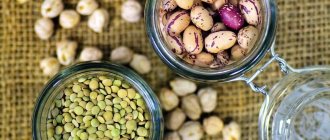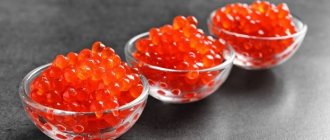Sugar is considered one of the main “enemies” of health among foods. It is excessively high in calories, and is absorbed very quickly, which threatens the appearance of excess weight and interferes with getting rid of it, and the high glycemic index makes it a real poison for people suffering from certain diseases, in particular diabetes. In addition, sugar increases appetite, causing overeating. It is not surprising that advocates of healthy eating and those who want to lose weight try to limit their consumption or even completely eliminate sugar from their diet, but giving up the usual taste sensations is not so easy. All kinds of sugar substitutes come to the rescue.
Read this article about which sweetener is considered the safest for health and has the best taste. Today's material contains all the popular types of sweeteners with a detailed analysis.
Sweeteners and sweeteners
There are two categories of sugar substitutes. They all taste sweet to varying degrees, but differ in chemical nature.
Sweeteners
These substances are carbohydrates or fairly close to them. They are comparable in calorie content to sugar, as well as in taste, but are absorbed much more slowly, causing less harm to health.
Sweeteners
From a chemical point of view, they belong to other types of substances that differ from carbohydrates in molecular structure. Their calorie content is very low, and their sweetness is hundreds and even thousands of times higher than sugar. This means that the substance tastes like sugar in a lower concentration. However, this may vary depending on the temperature of the food, and some sweeteners are sweeter when combined with others.
It should be noted that both terms are not always absolute in nature and are sometimes used as synonyms. Sweet supplements are produced in the form of powders, tablets and liquids. In the food industry, powders are mainly used, liquids are used when preparing food at home, and sweetener tablets are conveniently added to coffee or tea.
History of origin
70s of the 19th century. Chemist Konstantin Fahlberg (by the way, a Russian emigrant) returns from his laboratory and sits down to dinner. His attention is attracted by the unusual taste of the bread - it is very sweet. Fahlberg realizes that it is not the bread - there is some sweet substance left on his fingers. The chemist remembers that he forgot to wash his hands, and before that he was doing experiments in the laboratory, trying to find a new use for coal tar. This is how the first synthetic sweetener, saccharin, was invented. The substance was immediately patented in the USA and Germany and after 5 years it began to be produced on an industrial scale.
It must be said that saccharin constantly became the object of persecution. It was banned in both Europe and Russia. But the total shortage of products that arose during the First World War forced European governments to legalize “chemical sugar.” In the 20th century, the chemical industry made a breakthrough and sugar substitutes such as cyclomate, aspartame, sucralose were successively invented...
Common Misconceptions About Sweeteners
Sugar substitutes are surrounded by a huge number of myths. Let's look at the most common of them.
- Natural sweeteners are better than synthetic ones
The contrast between “harmful chemicals” and “useful gifts of Mother Nature” is actively exploited in advertising, but is not always true; just remember botulinum toxin - a terrible poison of natural origin, 70,000 times more toxic than dioxin, the strongest of synthetic toxic substances.
The same is true with sweeteners. For example, one of the substances that makes up natural stevia, dulcoside, is banned in the United States due to suspected mutagenicity. Synthetic aspartame does not pose such a danger, and is superior in taste to stevia.
- Sweeteners are not suitable for baking
This does not apply to all sweeteners; for example, sucralose and stevia are not subject to heat treatment. Given that erythritol does not destroy egg whites, it can be used for meringues or meringues.
- Just replace sugar with sweeteners to lose weight
The calorie content of the foods consumed is certainly important when losing weight, but it is not the only thing. The use of substitutes creates a paradoxical situation: the sweet taste provokes the production of insulin, but the body does not receive glucose. As a result, an irresistible feeling of hunger arises, forcing a person to overeat, and choose food containing quickly digestible carbohydrates, which does not at all contribute to weight loss.
Switching to substitutes in itself does not guarantee weight loss; the need for self-control is not canceled.
We should also not forget that the calorie content of these substances, although lower than that of sugar, is still not zero, and the consequences of an overdose can be much worse than extra pounds.
A special situation arises when consuming sweeteners that are not carbohydrates: without additional carbohydrates, the body creates fat reserves with particular intensity, which does not at all contribute to weight normalization.
- Sweeteners are very expensive
This is partly true; these products are more expensive than sugar. But many of them surpass it not only in price, but also in sweetness - a smaller amount of substitute will last for a longer period. This way, you will spend no more money, and maybe even less. For example, stevia sweetener is 10 times sweeter than sugar.
So, a two-hundred-gram pack of stevia-based sugar substitute corresponds to 2 kilograms of regular sugar!
Diet Coke and Other Myths That Are Killing Your Health!
Advertising today screams loudly about supposedly diet products (soda, juice, low-calorie sweets) that will help you lose weight and at the same time charge you with energy. But is it?
We have collected for you the most popular myths about products containing sweeteners.
Myth 1: Soda labeled "diet" can't be harmful.
Any soda is unhealthy, be it labeled “light” or “sugar-free.” The only difference is that in diet sodas natural sugar has been replaced with sweeteners (aspartame or sucralose). Yes, the calorie content of such water is slightly less than a regular sweet drink, but the harm to health that a dietary product with substitutes causes is much greater than from regular soda.
Myth 2: Sugar syrup is better than sugar.
Having experienced the harm of artificial substitutes for the first time, buyers turned their attention to their newly-minted alternative - glucose-fructose syrup. Advertising for the product talked about the product being healthy and free of empty calories. As a result, this advertising move was called a deception of gullible customers: both syrup and sugar consist of a mixture of fructose and glucose (approximately 1:1). This means that sugar and sugar syrup are the same thing. Conclusion: products are equally harmful in large quantities.
Myth 3: Sweeteners are diet pills.
Sweeteners are not a panacea for excess weight. They do not have pharmacological effects aimed at weight loss. By consuming sugar substitutes, you are simply reducing the calorie intake in your diet. Thus, replacing sugar with sweeteners in cooking allows you to save about 40 g of sugar every day. But with a serious approach, by reducing calorie intake and using a balanced diet along with physical activity, you can achieve weight loss. At the same time, you should remember the main disadvantage of sweeteners - many of them increase appetite, which is far from beneficial for you.
Review of sugar substitutes
There are natural and synthetic sweet food additives, each of them has its own advantages and disadvantages.
Fructose
A natural substance found in fruits. The calorie content is comparable to sugar, but its sweetness is 1.7 times greater, allowing you to significantly reduce the quantity (and, therefore, the calorie content). It also affects tooth enamel, but to a lesser extent than sugar, and the tonic effect is useful during physical activity.
But fructose is not without its drawbacks:
- is broken down only by the liver, creating excess load on this organ;
- can cause irritable bowel syndrome;
- easily stored in fat reserves.
Side effects most often occur with excess fructose. If your diet includes a lot of fruit, you are already getting enough fructose, and there is no need to consume it additionally instead of sugar.
Stevia
The plant, also known as honey grass, is native to South America and Asia. Low calorie content is combined with a high degree of sweetness, has a beneficial effect on digestion, and normalizes blood pressure. Stevia contains potassium, which is essential for the heart.
Stevia produces four sweet-tasting substances:
- stevioside;
- rebaudiosides A and C;
- Dulcoside A.
Stevia has a bitter taste, but is quite popular because of its natural origin and because it can be added to baked goods. It’s common to think that this is a safe sweetener, but you shouldn’t get carried away with it, like others.
Sorbitol
According to its molecular structure, it is not a carbohydrate, but a polyhydric alcohol. The calorie content of the sweetener sorbitol is low, and due to its low glycemic index it is often recommended for diabetics. It occurs naturally in some starch-containing products.
Sorbitol stimulates the production of gastric juice, thereby improving digestion, but it is not recommended to consume more than 15 g per day, otherwise it can cause bloating.
Sucralose
This synthetic product is made from sugar, so the taste is practically no different from it, but the degree of sweetness is 600 times greater than it. Sucralose can withstand heat treatment, but can increase insulin levels.
Aspartame
A very popular synthetic product with minimal calorie content and 200 times sweeter than sugar, but if consumed excessively it causes headaches, insomnia and decreased vision. In experiments on animals, an increased risk of malignant tumors was observed; there is no similar data regarding the effect on humans.
Saccharin
Inferior to other products in almost all respects:
- bitter taste;
- carcinogenicity;
- danger of cholelithiasis.
The only advantage is the low price.
The harm of a sweetener called “Saccharin”, or E 954, clearly outweighs its advantages. It is not recommended to purchase the product.
Erythritol
Low in calories, practically harmless even in large quantities. Almost no different from sugar in taste and appearance, it is often used together with stevia, muffling its bitter taste.
Cyclamate
A very dangerous substance: it leads to kidney failure; when processed in the digestive tract, it forms cyclohexane, which can cause intestinal cancer. Not recommended for use.
What does a diabetic need to know?
Failure of the thyroid gland is typical for diabetes mellitus, both type 1 and type 2. Against the background of such diseases, the concentration of glucose in the blood increases significantly. This condition can provoke the appearance of various pathologies and disorders.
That is why it is extremely important for the patient to stabilize the balance of substances in the blood. Treatment is selected by a specialist, depending on the severity of the pathology. In addition to taking medications, the patient must follow a certain diet.
Do not exceed consumption standards.
The diet should exclude the consumption of foods that provoke an increase in glucose levels. Muffins, sweet fruits and any other sugar-containing products are removed from the menu.
Sweeteners are used to diversify the patient's taste sensations. They can be artificial and natural. Natural sweeteners have a higher calorie content, but the body receives more benefits from them than from synthetic ones.
To minimize harm, you should consult a nutritionist or endocrinologist. The doctor will tell you which sweeteners are best to choose. Before choosing the optimal sweetener, you should consider their main negative and positive qualities.
The list of properties characteristic of natural sweeteners can be presented as follows:
- have a high calorie content, which is a negative condition for patients with type 2 diabetes who are predisposed to developing obesity,
- have a mild effect on carbohydrate metabolism,
- are highly secure,
- provide good taste to products without being overly sweet.
The optimal sweetener that can be used for diabetes.
Artificial sweeteners created in the laboratory differ in the following indicators:
- low calorie content,
- do not affect carbohydrate metabolism,
- if doses are exceeded, they impart an off-flavor to food products,
- the process of their influence in the body has not been fully studied, therefore the product is considered not completely safe.
It is worth noting that sweeteners are produced in powder and tablet form. Such elements can be easily dissolved in water and added to food.
Natural sugar substitutes
Sugar substitute.
The list of the most popular sugar substitutes can be presented as follows:
- Sorbitol or sorbitol . A similar product is a hexahydric alcohol, presented in the form of a colorless, crystalline powder with a sweet aftertaste. The product is obtained from rowan berries, apricots or other fruits. The drug does not provide weight loss, since its calorie content is quite high, it is about 3.5 kcal/g. The drug has a choleretic and laxative effect and provokes flatulence. The drug prevents the premature removal of beneficial substances from the human body. The maximum daily dose should not exceed 40 g.
- Xylitol. Xylitol is produced by processing corn heads, sunflowers, deciduous trees and cotton residues. Caloric content is about 3.7 kcal/g. The component accelerates metabolic processes in the human body. May provoke gastrointestinal disorders. The product has a negative effect on the condition of tooth enamel. The maximum daily dose should not exceed 40 g.
- Fructose . Fructose is the main constituent of fruits and honey. It is 2 times sweeter than sugar. The component is not a substitute for sugar for people who are overweight, since the calorie content of the products is quite high and amounts to about 4 kcal/g. Fructose is quickly absorbed in the intestines and does not provoke the manifestations of dental diseases. The maximum amount of fructose per day is about 50 g.
- Stevia. Stevia is a sugar substitute that can be consumed by diabetics with type 2 disease. The product is considered the most useful. The product is obtained from the seeds of the plant in the form of an extract. Despite its high sweetness, stevia extract does not contain large doses of calories. When using such a substitute, weight loss is possible. The drug does not provoke an increase in blood sugar levels and has a positive effect on metabolic processes. It is worth noting that the composition has a slight diuretic property.
The best sweetener: selection criteria
When deciding which sweetener is better, you can focus on different characteristics:
- taste;
- natural origin;
- degree of research;
- safety;
- availability.
According to the first sign, sucralose is in the lead; its taste is almost indistinguishable from the usual sugar. Stevia derivatives and fructose are of natural origin. Best researched, it breaks down during digestion into substances found in regular foods or even in the body, but it should be noted that it is not suitable for baked goods and other foods that require heat processing. Erythritol is practically safe. The cheapest and most commonly sold product is saccharin.
Related links
- What are sweeteners? (https://ru.wikipedia.org/wiki/%D0%9F%D0%BE%D0%B4%D1%81%D0%BB%D0%B0%D1%81%D1%82%D0%B8% D1%82%D0%B5%D0%BB%D0%B8).
- Where to buy sweeteners in Moscow? (https://market.yandex.ru/search?clid=545&cvredirect=0&lr=213&text=%D0%B3%D0%B4%D0%B5%20%D0%BA%D1%83%D0%BF%D0% B8%D1%82%D1%8C%20%D0%BF%D0%BE%D0%B4%D1%81%D0%BB%D0%B0%D1%81%D1%82%D0%B8%D1% 82%D0%B5%D0%BB%D0%B8%20%D0%B2%20%D0%BC%D0%BE%D1%81%D0%BA%D0%B2%D0%B5&deliveryincluded=0&onstock=1) .
The benefits and harms of sugar substitutes
Sweet food additives are included in the diet not so much for the benefits they bring, but to avoid the harm caused by sugar:
- negative effect on the pancreas;
- caries;
- pathological changes in the walls of blood vessels;
- excess weight.
Substitutes do not pose such a danger, but this does not mean that they cannot cause any harm; their use is not always safe.
- Sweeteners do not satisfy the body's need for glucose, which is necessary for the brain; a drop in its level in the blood below 4 mmol/l is hypoglycemia with all the ensuing consequences, including loss of consciousness.
- Glucose is necessary for beneficial bacteria that inhabit the intestines and participate in digestive processes. Its deficiency can lead to dysbiosis.
- Sugar plays an important role in the synthesis of dopamine and serotonin, which are figuratively called “hormones of joy.” Their deficiency when giving up sugar will, of course, not be so serious as to lead to endogenous depression, but a general decrease in mood and vitality will be guaranteed.
Just like sugar, its substitutes are harmful in excessive quantities; when consuming them, it is important to remember a safe dose.
People suffering from diabetes and other chronic diseases, pregnant women and nursing mothers should not use this or that sweetener without consulting a doctor. It is not recommended to use these substances for feeding children, because their effect on the children's body has not been sufficiently studied.











